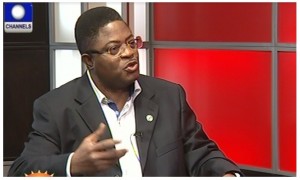
Giving an update on Tuesday on the progress made so far by the conference, Mr Bisi Adegbuyi said that the delegates were reflecting on achievements recorded in the first republic, where the likes of Nnamdi Azikiwe and Abubakar Tafawa Balewa were at the helm of affairs, between 1963 and 1966, and had stressed the need for the decentralisation of power.
The Nigerian President, Goodluck Jonathan, at the inauguration of the conference told delegates to take a deep introspection to see where Nigeria mixed it and come up with recommendations that would create a better future.
The Golden Years
Mr Adegbuyi also stressed that some positions presented to the conference by some regions, had centred on the need to adopt true federalism, anchored on regional autonomy that will empower the units to develop in their own pace.
“Without sounding like a cracked record, I am nostalgic about the golden years of Obafemi Awolowo in western region and I also believe the northerners are also nostalgic about the years of Amadu Belo in the north, ditto Nnamdi Azikiwe and later Michael Okpara.
“If you had a template that worked for you, where universities were world class universities, where hospitals were not mere consultant clinics and where infrastructure was indiscriminately unleashed across Nigeria, I think we should revisit it.
“We must weaken the centre, which is unwieldy as it is presently constituted with overwhelming incompetency, and develop Nigeria from the fringes.
“Let us look at countries that share so many similarities with us. India is a perfect example and it is working. They have continued to work on their front lines,” he pointed out.
The conference delegate stated that delegates from the South-south, south-west and south-east had largely agreed on parliamentary democracy, the need to devolve power and state police.
Sovereignty Belongs To The People
He pointed out that the current system of government was failing, as it could not boast of protecting lives and property which is the primary responsibility of every government.
“The spate of insecurity in Nigeria is frightening and we must quickly do something,” he said.
Mr Adegbuyi, who is also a lawyer, insisted that the government was over centralised at the expense of the component units that were closer to the people, causing a setback to the development process, as they lack needed funds.
The conference had decided to request for memoranda from Nigerians, insisting that the people should express their sovereignty and desire for change, a strategy that is aimed at generating an autochthonous constitution.
“We do not want to take the people for granted. We will have to seek the legitimacy of the people. The conference members were nominated and it raises crisis of legitimacy. If you take your resolutions to the people and by majority, they say yes to that process, then nobody, no institution or power can tinker what the people have accepted,” Mr Adegbuyi said.
“I do not subscribe to the idea that people who are part of the problems should not be part of seeking solutions to the problems they created and that we must get new people to sort out Nigeria. It is a baggage of some sort.
“The only thing is for the new blood who are involved now to seize the moment and then don’t allow the old people that had brought us to our knees to seize the initiative,” the lawyer stressed.
The issue of how decision can be reached on issues before the conference divided the house during the first few days of the conference. It was later agreed that 70 per cent vote would be needed to adopt a decision. The conference may also need to try consensus decision before voting.
On how the conference can achieve the consensus on the system of government that the country should adopt, Mr Adegbuyi said that the consensus had been encouraged in the conference.
He said: “Seventy per cent benchmark on agreeing on anything is good, but consensus is the way to go. We will try consensus but if it fails it will be put to voting. You cannot but have a consensus”.
According to him, the best is for the decision to be presented to Nigerians to say yes or no to it.
“Once that is done, then it should be grafted into the constitution,” he stated.
There have been fears that the National Assembly may not create the right atmosphere for the people to take the final decision by way of a holding a referendum on the decisions of the conference.
But the National Assembly had on Wednesday discussed the possibility of giving power to the Nigerian president, by way of an executive bill, to initiate the introduction of a new constitution, which may come from the conference.
There have been criticisms that the conference’s decisions may not be implemented as several conferences held in the past had been left unimplemented.
To guard against the chances of the decision of the conference going the way of others, the delegates in the conference had asked President, Jonathan to ensure the implementation of the conference’s decision.
Mr Adegbuyi, expressed optimism that the conference would have a good result, but stressed that good governance was what Nigerians needed, insisting that good governance will lay to rest issues bordering on religion, ethnicity and federal character amongst others.
